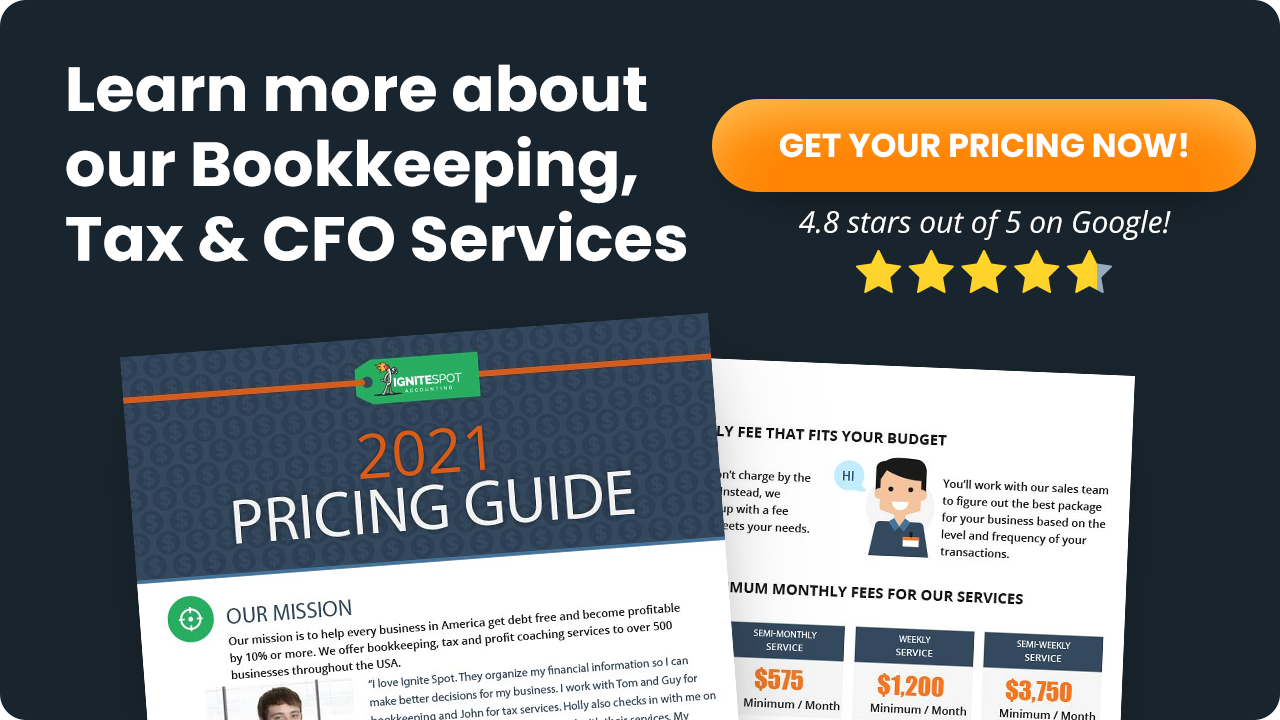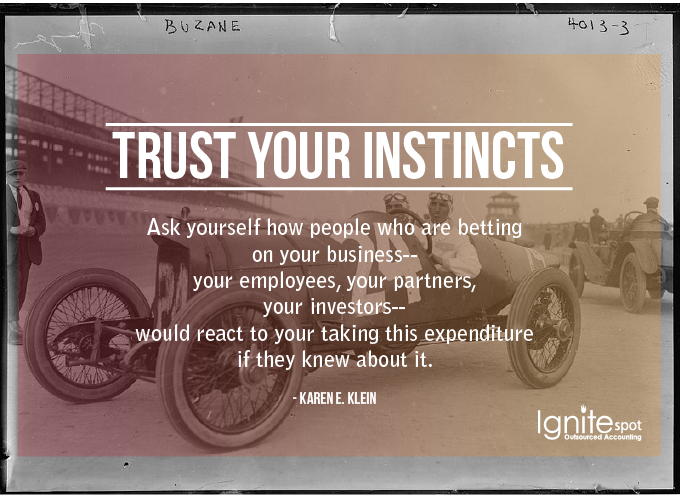
Operating a business is hard. There, we said it. You have to manage people, daily operations, products, and cash flow. But then there’s everything from renting your office or storefront to stocking supplies and equipment! It all costs money, and a million little things impact how you spend it.
But when push comes to shove, you need to be productive and make people happy. The equipment your people use—whether it’s laptops for the office or forklifts for the warehouse—has major impacts on your business. So does it make more sense to buy or lease your equipment? Your friendly neighborhood bookkeeping services firm weighs in.
Buying and Leasing Equipment
Choosing equipment for your small business can be equal parts exciting and stressful.
Apart from selecting the right type of equipment, choosing between leasing and buying equipment can affect your accounting needs—from up-front costs and maintenance costs to tax implications.
Leasing
Leasing is more popular for new small businesses since they often can’t make huge capital investments out of the gate. Or even if they have the funds available in the bank, they know it’s better to hold off on large expenditures until they break even.
Think about your company’s future technology needs too. Some small businesses don’t require new technology very often, but yours may need regular updates to stay relevant. Leasing allows businesses to upgrade equipment at the end of a lease period.
Leasing Pros
- Tax deduction: Leasing is 100 percent tax-deductible up to $500,000 for small businesses.
- Low up-front costs: This makes leasing a good choice for new or existing businesses that are concerned with negative cash flow.
- No maintenance costs: If equipment isn’t working the way it should, it’s the responsibility of the company that issued the lease to fix it.
Leasing Cons
- High total cost: The total cost of leasing an item usually exceeds its purchase price over time.
- No equity: When you lease, you don’t own the equipment, so you don’t have any equity or freedom to sell the equipment to offset the cost.
- Unfavorable terms: Lease agreements can be strict and lock you in for terms that are longer than you want or need.
- Tricky maintenance standards: Maintenance standards are relative to the company leasing the equipment, but they may not meet the standards of the lessee.
- Limited choice: If a company doesn’t offer your preferred brand, you may get a similar piece of equipment from another brand you don’t like.
Buying
Buying works for established businesses or ones that really understand their needs. If they’re sitting clearly in the black and have money available in the bank, they know buying equipment is feasible—especially if it won’t have to be replaced for quite some time.
Buying Pros
- Easier than leasing: There are no contracts to fill out, nor do you need to provide detailed financial information.
- More choice: You aren’t limited by a vendor’s inventory. You can shop around until you find exactly what you’re looking for.
- Greater control: By owning, you get total control over maintenance, including swift repairs and high quality standards.
- Equity: You have the option of selling your equipment once you’re done with it, recovering some of its cost.
- Tax benefits: Section 179 of the tax code provides tax incentives depending on what assets you purchase and how.
Buying Cons
- Greater up-front costs: If you purchase equipment using a line of credit, for example, you’ll likely be required to make a down payment.
- Risk of obsolescence: If you buy equipment and it doesn’t last or quickly gets an upgrade, you may end up with obsolete technology.
- Maintenance costs: You’re responsible for maintenance and updates to existing equipment.
- Higher risk: Taking a chance on a new product means you may end up with something that doesn’t work for you—and returning it may not be possible.
Things to Consider When Buying/Leasing
Choosing between buying and leasing equipment isn’t as simple as flipping a coin. Just like when making everyday decisions such as hiring, your business needs to weigh how the decision would impact you operationally and financially.
Current and Future Needs
To determine your need for updated technology and whether or not it makes sense to lease or buy, follow these steps:
- Determine the equipment you use daily that has a long, useful product life. Does the technology change rapidly, quickly making it obsolete? If your equipment has a longer life of usefulness, consider buying.
- Think about assets you’ve owned over the past year and how long you’ve kept them. If you maintain your assets for years, consider buying.
- Decide if you really want to deal with maintenance. If you prefer low maintenance requirements, consider leasing.
Financing Options
Not all small businesses qualify for equipment financing. While this may be due to a lack of creditworthiness, lenders also look at how long you’ve been in business and your available collateral.
To understand your financing options, follow these steps:
- Understand the implications of all your credit scores. Pull your business credit details from FICO, Dun & Bradstreet, Experian, Equifax, and personal credit.
- Shop around for lease terms. Ask each company to put your prequalification lease terms in writing.
- Take your prequalifications to a bookkeeping services firm to determine your options for buying or leasing new equipment.
Tax Implications of Buying and Leasing Equipment
“I’ll just write it off on my taxes,” you say. But can you really? Buying and leasing each comes with different tax-related caveats. Your final decision could rely on what you want to achieve.
Buying Equipment
From a tax perspective, buying equipment has some give and take, with specific deduction allowances. For instance, if you buy via financing, you can only deduct the interest—not the total purchase price—as an expense. But with some business assets, such as automobiles, you can deduct depreciation of purchases, requiring that you understand the per item allowance.
Leasing Equipment
Leasing is generally appealing when tax time rolls around. That’s because deducting the cost of leased equipment can simplify your business’s taxes compared to deducting depreciation. Plus you get a larger deduction than you would by deducting interest on a credit purchase.
How to Decide Between Buying and Leasing Equipment
Ultimately, when you’re weighing buying and leasing options for equipment, you need to take a number of factors into account. A good starting point? Talk about it with your trusted bookkeeping services team.
Beyond that in-depth discussion (and preferably beforehand), sit down and really think about your company’s position and equipment needs over time.
Ask yourself:
- What’s my ability to obtain financing?
- Do I need to prioritize new technology for daily operations?
- How will buying or leasing impact my business tax-wise?
- How do the pros and cons of buying and leasing stack up?
There’s no one-size-fits-all solution for buying and leasing. Small-business owners may have an idea of what they would prefer but should get advice from accounting and bookkeeping services who can look at the bigger picture.
Need advisors in your corner? Ignite Spot’s team of pros can help you make sure your equipment meets the needs of your business for years to come. Our goal is to make you profitable. Contact our team today and schedule your complimentary CFO session to learn how we can help meet your bookkeeping and accounting needs.













.png)




